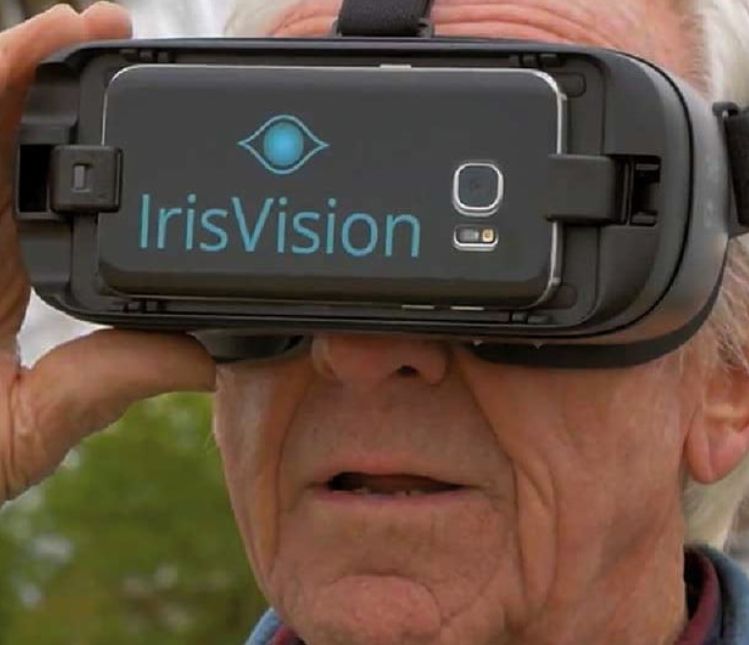IrisVision Partners with Seva to Improve Vision Healthcare Globally
IrisVision Partners with Seva to Improve Vision Healthcare Globally

Earlier this year IrisVision received a $250,000 grant from the Seva Foundation as part of a partnership to create new technology solutions for preventing blindness and treating vision impairment in underserved communities around the world. IrisVision developed the world’s first and only smart visual assistive device built on wearable virtual reality (VR) technology to help millions of vision-impaired people regain their sight, achieve greater independence, and do the things they enjoy. Seva is a global nonprofit that works to restore sight and prevent blindness in more than 20 countries.
IrisVision technology harnesses the power of a Samsung Galaxy smartphone mounted in a Samsung headset. People with impaired visual acuity wear the headset to see clearly again. IrisVision is the only wearable low vision solution backed by a research grant from the National Eye Institute, clinically validated, and developed in collaboration with researchers from the world’s top ophthalmology centers at Johns Hopkins University, Stanford University, and University of Pittsburgh Medical Center.
Winner of the CES 2019 Innovation Award, IrisVision is an FDA Class I medical device already in use by thousands of visually impaired people around the world. Until IrisVision, the world of a person with low vision was constrained to the narrow field of view and distance of a handheld magnifying glass or an indoor, desktop magnifier. One Fremont teen who suffers from optic nerve atrophy, for example, can now read and attend school to pursue his dream of becoming a psychologist thanks to IrisVision technology.
“IrisVision provides life-changing possibilities for those with low vision and the legally blind,” says CEO and Cofounder Ammad Khan. “Our award-winning technology not only helps people see but to connect and engage, providing critical access to loved ones, healthcare, information, and entertainment. No other vision-assistive technology is as intuitively designed for daily use and independence. We are expanding our vision science technology to help people get eye care remotely.”
An estimated 250 million people worldwide have low vision or are legally blind due to conditions such as macular degeneration, diabetic retinopathy, and retinitis pigmentosa. In the United States, about 4 million Americans live with low vision, according to the company. Low vision is a chronic visual impairment that can’t be corrected with glasses, contact lenses, or medical treatments.
Low vision and blindness are the leading causes of disability in the nation. There were nearly 500,000 new diagnoses of low vision this year, according to the company, and a recent study shows that low vision and blindness will more than double in the next 30 years.
IrisVision’s technology opens up the world for people with low vision, allowing them to move about freely and enjoy a variety of activities, whether that be cooking, crocheting, watching a football game or movie, reading a book or prescription bottle–or simply seeing the faces of those they love again. In addition to delivering digital vision correction, IrisVision includes remote connectivity to support streaming videos, a photo gallery, voice command, and an advanced optical-character recognition system.
“The software platform continues to open a world of possibilities for the future including movies and media content, rehabilitation training software, and even medical monitoring of vision for patients to connect to their doctor via telemedicine,” notes Khan.
Approximately 15 employees work at the IrisVision headquarters at Hacienda. IrisVision was founded in 2015 and moved to Hacienda in 2017 in part because of its business-friendly location. The company also has a team that works in Pakistan.
For more information about IrisVision, please visit www.irisvision.com.




